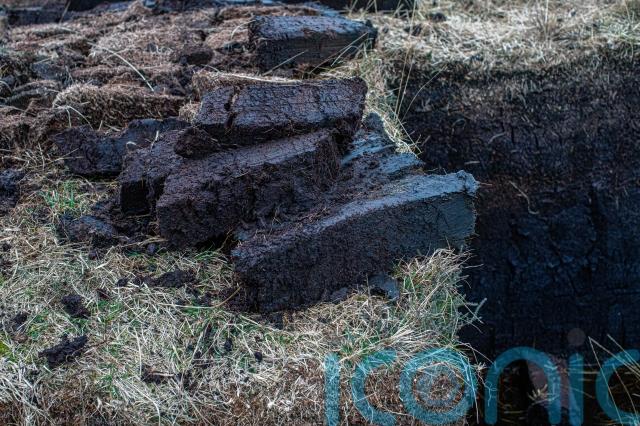
RSPB Scotland has objected to a “damaging” proposal for a pumped storage hydro scheme claiming it would lead to habitat loss for threatened birds.
The charity also warned that construction of the Balliemeanoch pumped storage hydro project would release carbon dioxide as it involves the excavation of peat.
The proposal would see the construction and operation of a large hydro scheme on the hillside to the east of Loch Awe in Argyll and Bute.
RSPB Scotland said the scheme would involve the excavation of a “huge amount” of peatlands, which store carbon and provide valuable habitats for wildlife.
It claimed that if the project is granted consent it would result in the loss of about 164 hectares of habitats for species like the curlew, a bird which is considered to be UK Red Listed and therefore of the highest conservation concern.
Aedan Smith, head of policy and advocacy at RSPB Scotland, said: “People across Scotland are increasingly concerned about the impacts of climate change and the decline in our incredible wildlife.
“We support renewable energy and storage, and new infrastructure will be needed to tackle the climate crisis, but this must not be at the cost of important places for nature which can also play a crucial role in addressing climate change.
“It’s disappointing to see a national development proposal which has failed to properly consider impacts on nature.
“To protect our landscapes and species for generations to come, we must make careful decisions.
“Excavating 1.6 million cubic metres of peat would not only release damaging carbon dioxide emissions but would lead to the loss of vital habitats for bird species that are in decline across Scotland. As such, we have objected to this damaging proposal.”

Scotland’s nature agency NatureScot has also objected to the proposal, citing its impact on habitats.
A spokesperson for the agency said: “We recognise that pumped storage hydro schemes have an important role to play in supporting the transition to a net-zero economy, however, in this case, we have objected to the proposal due to significant adverse impacts on priority peatland habitat.
Pumped storage hydro is a way of storing energy and involves two bodies of water, one higher than the other.
When there is low demand and extra electricity in the system, water is pumped up to the top reservoir, and when electricity demand is high, the water is released, generating electricity by turning a turbine.
A scoping report for the Intelligent Land Investments (ILI) Group proposal says that Balliemeanoch PSH will have a storage capacity of up to 45,000 megawatt hours (MWh) with up to 1,500 MW of installed electrical generation capacity (subject to further investigation and feasibility works).
The report states that: “The construction of the proposed development will result in the expected excavation of peat and release of carbon into the atmosphere.”
However, it adds: “Following completion of the construction phase, areas impacted by the proposed development, such as peatlands, will either be reinstated or will be unchanged.
“As such, significant effects on geology and soils during the operational phase are unlikely; and this is therefore scoped out for this phase.”
According to the report, environmental design measures will be embedded into the design of the proposed development.
It states: “This will ensure that good practice is adopted at the development site throughout the construction and operation phases.
“The purpose of embedding environmental design measures as part of the design will be to minimise the impacts on peat, including the release of carbon, and to balance, as well as possible the material being excavated on site with what is being reused.”
The Scottish Government was approached for comment but a spokesperson said it would not be appropriate to comment on live applications.
An ILI Group spokesperson said: “We take the environmental impact of our projects seriously and are committed to ensuring that the Balliemeanoch Pumped Storage Hydro project is developed in a responsible manner that aligns with both climate and ecological priorities.
“ILI Group has undertaken extensive ecological assessments and consultations, including engaging with the RSPB during the environmental impact assessment process.
“These surveys, conducted over several years, have provided a detailed understanding of the environmental landscape, and we have incorporated mitigation strategies into our plans to minimise impacts on local wildlife and peatland.
“We acknowledge the concerns raised by the RSPB and are actively reviewing the scale of the project to reduce its environmental footprint.
“This review aims to address potential impacts while maintaining the project’s essential role in supporting the UK’s transition to net zero.
“Pumped storage hydro plays a critical role in decarbonising the energy system by providing large-scale, long-duration energy storage, reducing the reliance on fossil fuels, and preventing the wasteful curtailment of renewable energy.
“Projects like Balliemeanoch are crucial for stabilising the grid and ensuring a reliable energy supply in a future powered predominantly by renewables.
“We will continue to engage with stakeholders, including conservation groups, the local community, and government agencies, to find a balanced approach that supports both nature and the fight against climate change.”
Subscribe or register today to discover more from DonegalLive.ie
Buy the e-paper of the Donegal Democrat, Donegal People's Press, Donegal Post and Inish Times here for instant access to Donegal's premier news titles.
Keep up with the latest news from Donegal with our daily newsletter featuring the most important stories of the day delivered to your inbox every evening at 5pm.